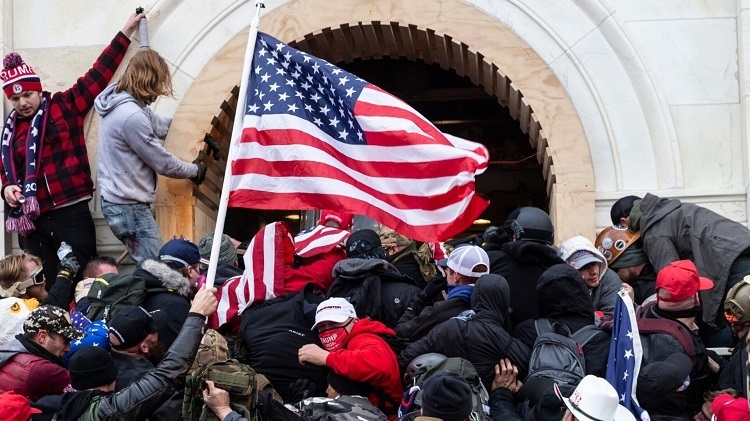Politics
The Evolution of American Political Ideologies: From Founding to Present

The United States has been a nation marked by its political ideologies since its inception. These ideologies have undergone numerous shifts, reacting to socio-economic changes, global events, and an evolving national identity. This article seeks to provide an overview of American political thought’s transformation from its founding to the present.
The Founding Era (1776-1800)
The birth of the United States came with a revolutionary spirit. Enlightenment ideals shaped Early American political thought significantly, especially John Locke’s. Natural rights, popular sovereignty, and limited government became foundational principles.
The Federalist and Anti-Federalist debates revolved around the size and scope of the federal government. While the Federalists sought a stronger central government, the Anti-Federalists pushed for states’ rights and feared potential tyranny from a powerful central authority.
The Age of Jackson (1828-1850)
The early 19th century saw the rise of what’s known as Jacksonian Democracy. This era, named after President Andrew Jackson, was characterized by a greater emphasis on the common man. The political elites and the aristocracy were often challenged.
Voting rights expanded to include all white men, not just property owners. The era, however, was also marked by controversies such as the Indian Removal Act, showcasing the complexity and contradictions of American politics.
Civil War and Reconstruction (1850-1877)
The mid-19th century was tumultuous, with debates over slavery fracturing political thought. The Republican Party, born in the 1850s out of the anti-slavery movement, clashed fundamentally with the Democrats of the South.
The Civil War was not just a military struggle but a deep ideological one. The Reconstruction that followed attempted to rebuild the South and integrate freed slaves into the American socio-political fabric, although with varying degrees of success.
Progressive Era (1890s-1920s)
The late 19th and early 20th centuries witnessed America’s transformation into an industrial power. With that came numerous socio-economic challenges: inequality, labor struggles, and concerns over big business. The Progressive Movement sought to address these issues.
Leaders like Teddy Roosevelt and Woodrow Wilson championed reforms in government, regulation of businesses, and social issues. They aimed at ensuring that the government worked for the people rather than a select few.
The New Deal Era (1930s)
The Great Depression brought about a significant political shift. President Franklin D. Roosevelt’s New Deal policies aimed at addressing the economic collapse. This era saw the federal government’s role in economics and welfare expansion, setting a new standard for what many Americans expected of their government.
Post-War Consensus (1945-1960s)
Following World War II, there was a general consensus around a mixed economy, a welfare state, and anti-communism. The Cold War defined much of the foreign and domestic policy, leading to a focus on national security and a strong federal government.
Civil Rights and Conservatism (1960s-1980s)
The 1960s brought civil rights to the forefront, with movements demanding equal rights for African Americans, women, and other marginalized groups. The era also saw a rise in conservatism, reacting against perceived moral and cultural declines. The election of Ronald Reagan in 1980 symbolized this shift, emphasizing free markets, limited government, and traditional values.
Modern Era (1990s-Present)
The end of the Cold War brought with it new challenges and ideologies. The rise of globalization, the digital revolution, and September 11, 2001 events significantly influenced American political thought. Debates over immigration, globalism vs. nationalism, and the roles of technology and privacy in society mark the ideologies in this era.
In the present, the American political landscape is deeply polarized. Issues of climate change, wealth inequality, racial justice, and health care dominate the discourse. There’s also an ongoing debate between populism and establishment politics, highlighting American political ideologies’ diverse and ever-evolving nature.
Conclusion
The evolution of American political ideologies reflects the nation’s journey through various challenges and transformations. From the Enlightenment-inspired ideals of its founders to the complexities of modern global challenges, the United States has always been a melting pot of political thought.
While the future is uncertain, the nation’s history suggests that ideologies will continue evolving, driven by events within and beyond its borders.

 Fashion1 year ago
Fashion1 year agoSustainable Style: How Eco-Fashion is Redefining Modern Wardrobes

 Home Improvement7 years ago
Home Improvement7 years agoHome Improvement is The Best Way To Go.

 Home Improvement6 years ago
Home Improvement6 years agoGreen Alternatives for Carpet Cleaning

 Technology5 years ago
Technology5 years agoHow the iPad Powered Through All the Flak

 Technology7 years ago
Technology7 years agoAustralia’s Tech Start-ups Could Become Highly Profitable

 Technology7 years ago
Technology7 years agoAdvantages of Using Safety Management Software

 Home Improvement7 years ago
Home Improvement7 years agoHow to Survive a Renovation Project

 Technology7 years ago
Technology7 years agoMust Have Photography Apps For Your Tablet



















You must be logged in to post a comment Login